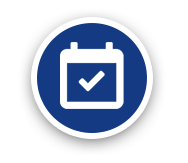Excessive daytime sleepiness is a problem that can impact many aspects of daily life, including work, family time, driving, and hobbies. There are many causes of excessive daytime sleepiness, which should be carefully evaluated by a sleep specialist to determine the cause.
For some people, excessive daytime sleepiness is caused by a hypersomnia disorder, like narcolepsy, idiopathic hypersomnia, or Kleine Levin syndrome.
Emory Sleep Center has the expertise to comprehensively evaluate excessive daytime sleepiness and develop personalized treatment plans.




